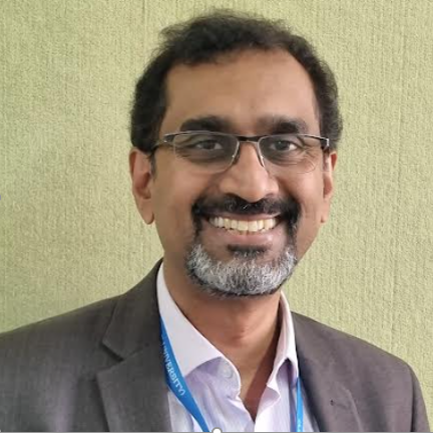
Affiliation:
Dean of Social Sciences at CHRIST – Bangalore, India
Short bio:
Tony Sam George is an Experienced Professor of Psychology with a demonstrated history of working in the education management industry. Skilled in E-Learning, Social Services, Group Therapy, Student Counselling, Family Therapy and Leadership Development.
Tony Sam George is currently Dean of Social Sciences at CHRIST (Deemed to be University) in Bangalore, India, and Head of Psychology. He is also a Mentor and Director to the Higher education Leadership Institute, Teaching Learning Enhancement Cell and, was formerly founded and Directed by the Centre for Academic and Professional Support at the University. Dr George completed his Doctoral Training from the National Institute of Mental Health and Neurosciences and His Doctoral thesis looked at Psychotherapeutic models to reduce disability and improve the quality of life of persons suffering from.
Obsessive-Compulsive Disorders. Dr George is a visiting fellow to the Autonomous Medical University of Mexico at St Louis Potosi and the University of Western Cape South Africa. He was also an alumnus of the United Board Fellows Programme and spent time at Harvard Graduate School of Education and Sophia University Tokyo as part of the Fellows program.
Dr George is a practicing Psychotherapist and has a clinical interest in Group, Family, and Couples therapy. He has research interests in adolescent mental health, family violence, Social models of care in anxiety disorders, the professional development of the psychotherapist, the doctoral supervision process, Counselling and Spirituality and more recently your impact of online teaching on student mental health and Higher Education Leadership Development.
Abstract:
Leadership development (LD) is consistently reported as a low priority area in higher education. Academic organizations are not known for making major investments like money and energy in LD and yet decades of research confirms that effective leadership is essential for successful outcome of change in academic organizations . More recently, unprecedented challenges hit academic institutions, opening up several deficits and challenges to leadership. Higher education institutions (HEIs) with strong and resilient institutional cultures, coupled with proactive and bold leadership, navigated these challenges. Most institutions struggled with student learning, faculty retention and well-being. While universities in North America, some parts of Europe, Australia and a few in Asia have prioritized LD for academic leaders, there is hardly any planned leadership development activity for academic leaders in India and South Asia.
While models of LD have evolved considerably in the West, there are very few evidence-based models of Asian higher education LD. Confounding this challenge is the complex and dynamic social, political, and economic contexts that most universities and colleges in Asia operate from. Systematic reviews on published research on educational leadership in Asia are low in comparison to the enormous population in the region and the rapid growth of the higher education sector. Academic leaders and policy makers take decisions that are largely uninformed by regional data on educational leadership, owing to the lack of culture-specific literature and training programs. The application of western knowledge bases is also limited by the extent to which its theories and practices account for and align with the system structures and cultural contexts of Asia.
The keynote presentation will explain the development of leadership development institute in India, the pivotal role of psychology as a discipline in shaping the curriculum of the training institute and the unique needs of higher education leaders in Asia.
